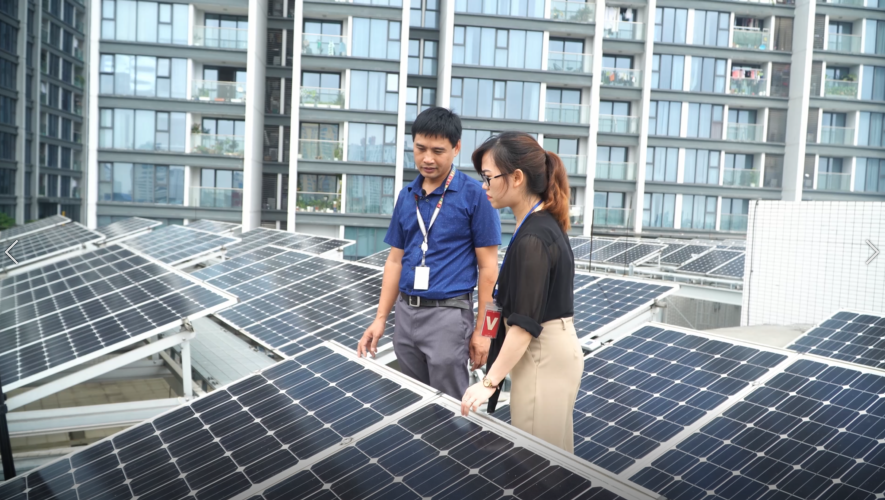Law No. 77/2025/QH15 marks a significant step forward in Vietnam's efforts toward sustainable development and its commitment to achieving net-zero emissions by 2050. This Law not only carries legal weight but also serves as a strategic tool to promote the green transition, enhance resource efficiency, and shape consumer behavior throughout society.
The Law Amending and Supplementing a Number of Articles of the Law on Energy Efficiency closely follows the four policy directions submitted by the Government to the National Assembly’s Standing Committee, including: First Policy: Strengthening state management in energy efficiency and conservation; Second Policy: Enhancing energy consultancy services, energy auditing, and workforce training in the field; Third Policy: Introducing incentives and financial tools for energy efficiency investments; Fourth Policy: Transitioning the market and managing performance of energy‑using equipment and materials.
The Law amends 19 articles and adds 1 new article to the 2010 Law on Energy Efficiency and Conservation.
Inheritance of the 2010 Law
The Law on Energy Efficiency and Conservation (Law No. 50/2010/QH12) was issued by the 12th National Assembly, 7th session, on June 17, 2010, and came into effect on January 1, 2011.
Its enactment marked a milestone in building the legal framework for energy efficiency in Vietnam. The Law institutionalized the consistent direction of the Party and State, recognizing energy efficiency as a top-priority policy with a crucial role in economic development, energy security, and environmental protection. It aligned with the market economy model under state regulation and international integration.
Essentially, the amended law inherits most current provisions on energy management from the 2010 version, which included 12 chapters and 48 articles, of which 29 articles remain unchanged.
This revision focuses on developing stronger financial and technical tools to help businesses adapt to and comply with new international market demands (Policies 2 and 3). Policies 1 and 4 maintain the core provisions of the 2010 Law, though adjusted and supplemented to align with recent regulations.
Strengthening State Management on Energy Efficiency and Conservation.
The amendments aim to complete national policies and enhance state management in energy efficiency, including: Enhancing measures for energy efficiency in production and energy supply facilities; Increasing responsibility for designated key energy users; Expanding energy labeling to cover construction materials; and Improving regulations for Energy Service Company (ESCO) models.
Notably, the new Law introduces incentives and the establishment of a Fund for Promoting Energy Efficiency, viewed as a flexible and open financial mechanism to support organizations and individuals in implementing energy efficiency investment projects.
Enhancing Decentralization and Delegation of Power
The Law modifies four clauses across four articles (Articles 30, 32, 39, 40) from the 2010 Law regarding decentralization and delegation of authority, as well as three clauses in three articles (Articles 34, 35, 39) related to administrative procedure reform.
All contents under the authority of the Government, Prime Minister, and relevant ministries have been reviewed to ensure alignment with their legal responsibilities. The law maximizes decentralization, including: Delegating to provincial People’s Committees the authority to issue the list of designated key energy users; Delegating to the Ministry of Industry and Trade and the Ministry of Construction the authority to issue lists and implementation roadmaps for devices, equipment, and construction materials requiring energy labels.
Notably, the Law abolishes the Prime Minister’s authority to issue the list of energy-saving devices required for public procurement.
50% Reduction in Administrative Procedures
Upon review, the 2010 Law contained four administrative procedures. The amended Law cuts two of them (a 50% reduction) related to issuing energy labeling certificates and energy audit certifications. The procedures for issuing energy manager certificates and accrediting energy performance testing labs remain unchanged.
Compatibility with International Treaties and Commitments
The Ministry of Industry and Trade has reviewed international treaties and commitments related to energy efficiency and found that the amendments do not conflict with any international obligations Vietnam has joined. This has been assessed in detail in the Law’s impact assessment report.
Promoting Energy Efficiency and Conservation Activities.
The Law’s development follows the principles of gender equality and non-discrimination, concretizing and ensuring human rights as enshrined in the 2013 Constitution. Specifically, gender equality is a key criterion when reviewing legal documents (Clause 2, Article 20 of the Law on Gender Equality).
The amended Law does not include any provisions that affect gender-related rights, access, or implementation conditions. All provisions apply equally without discrimination.
Vietnam has pledged to achieve net-zero emissions by 2050. Therefore, in parallel with transitioning toward low-carbon energy sources and increasing the share of renewables, stronger implementation of energy efficiency solutions is essential.
The Law Amending and Supplementing a Number of Articles of the Law on Energy Efficiency continues to institutionalize the Party and State’s strategic orientations, addressing domestic practical issues, aligning with international laws and norms, and enhancing governance effectiveness, eliminating obstacles, and creating a favorable legal environment. It also strengthens incentive mechanisms and encourages broader adoption of energy efficiency activities.
Innovation, Green Transition and Industrial Promotion Agency, Ministry of Industry and Trade.










